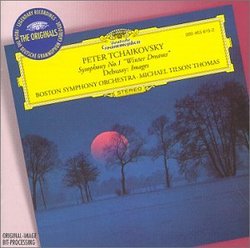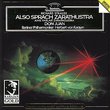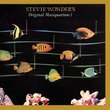| All Artists: Claude Debussy, Pyotr Il'yich Tchaikovsky, Michael Tilson Thomas, Boston Symphony Orchestra Title: Tchaikovsky: Symphony No 1; Debussy: Images / Michael Tilson Thomas Members Wishing: 1 Total Copies: 0 Label: Deutsche Grammophon Release Date: 6/13/2000 Album Type: Original recording remastered Genre: Classical Styles: Historical Periods, Modern, 20th, & 21st Century, Symphonies Number of Discs: 1 SwapaCD Credits: 1 UPC: 028946361528 |
Search - Claude Debussy, Pyotr Il'yich Tchaikovsky, Michael Tilson Thomas :: Tchaikovsky: Symphony No 1; Debussy: Images / Michael Tilson Thomas
 | Claude Debussy, Pyotr Il'yich Tchaikovsky, Michael Tilson Thomas Tchaikovsky: Symphony No 1; Debussy: Images / Michael Tilson Thomas Genre: Classical
This is an extremely welcome release for fans of Michael Tilson Thomas: the first CD appearance of a legendary recording with the Boston Symphony he made (as its new assistant conductor) in March 1970. At that point (still... more » |
Larger Image |
CD DetailsSynopsis
Amazon.com This is an extremely welcome release for fans of Michael Tilson Thomas: the first CD appearance of a legendary recording with the Boston Symphony he made (as its new assistant conductor) in March 1970. At that point (still only in his mid-20s), Tilson Thomas was becoming notorious for introducing provocative new music by the likes of Steve Reich, but he was also stirring up a rather moribund classical music scene. Just imagine the ethos in those days, when talk of the demise of the symphony orchestra as an absurd irrelevance was gloomier even than it is now: in rushed MTT with a super-infusion of excitement and confidence to rouse the players--and the audience. MTT was already proving his deep affinity with Russian composers (which would be followed many years later by his enormously successful accounts of Prokofiev and Stravinsky). This is, in fact, one of the finest readings on record of Tchaikovsky's First Symphony (subtitled, with greater programmatic élan than usual, Winter Dreams), lushly expansive in its reveries (the veiled beauty of the slow movement as it unfolds its mournful folk song) but also crisp and pointed, dramatically tense, and featuring sinewy balances of wind, brass, and strings. The Tchaikovsky is worth the price of purchase itself, but the CD also includes a bracing vision of Debussy's Images. MTT's view of this sonic triptych shows a rhythmic vigor that will overturn stereotypes of vague, amorphous "impressionism" (a labeling Debussy, of course, always detested). At midprice, this is a must-have for your collection. --Thomas May Similarly Requested CDs
|
CD ReviewsJust Super 06/20/2000 (5 out of 5 stars) "This recording, one of the first Michael Tilson Thomas made as a conductor, is probably the best reading of Tchaikovsky's First Symphony. The playing by the Boston Symphony is first rate. It was made during the early 1970s when the orchestra was considered the best orchestra in performance of the French Impressionists, so the playing in the Debussy is very subtle and relaxed. Sadly, the playing of this orchestra has declined through the years, mainly because of the long tenure of the Seiji Ozawa as music director, which will thankfully come to an end soon. Tilson Thomas, however, shines throughout. This is an insightful, fresh look into both works." Historical debut! Hiram Gomez Pardo | Valencia, Venezuela | 05/06/2006 (5 out of 5 stars) "Michael Tilson Thomas debut with the Boston symphonic could not be more endearing and promissory. "Winter dreams" constitutes a heartfelt homage to Tchaikovsky' s birth land. An eloquent and evocative description of those places, nestled in the fevered imagination of this composer. The sumptuous work is filled of visual images, of engaging melodies, arresting passages of regenerative energy. Thomas made one of the most incandescent versions still available. And additionally, the presence of this prestigious Orchestra that still maintained the diamantine status conferred by Koussevitzky and Munch. Debussy Images is exotic loaded of enigmatic charm. An unforgettable performance, recommended without reserves not only for the musical dilettantes, but besides for the new listener generations, who will be able to understand through this interpretation that sentiment and sentimentalism are quite different issues. " Beautiful early Tchaikovsky, but the real star is the Debuss Santa Fe Listener | Santa Fe, NM USA | 03/18/2007 (5 out of 5 stars) "Critics have loved this "Winter Dreams" since its appearance on LP in 1970, and Tilson Thomas's account deserves its reputation for detail, clarity, and a singing line. He holds the score together admirably (showing more raw vitality as a young man than he would in later years). The first movement has real sweep, the Adagio cantabile is refined but with intensity, the Scherzo percolates along (MTT brings out the balletic side), and only the finale feels a little wan at first. In all, this is a fine performance, but I wouldn't automatically grant it legendary status. Try Abbado with the Chicago Sym. (Sony) and Jarvi (Bis -- the best recorded of all) before making a final decision.
Debussy's Images makes for an odd discmate, except that it too comes from Tilson Thomas's early golden period. Because of his musical refinement and precision over details, I've always thought MTT was at his best with French music, and of course the BSO was considered America's "French" orchestra under Koussevitzky and Munch (Leinsdorf couldn't quite erase that). As expected they play beautifully here, and the conducting is quite alert and stylish. DG's recording for this work is also considerably better than for the Tchaikovsky, which tends to be distant and over-resonant, so all in all, it is the star of the program. For me, the Debussy tilts the balance from four stars to five." |

 Track Listings (9) - Disc #1
Track Listings (9) - Disc #1




![Brahms: 21 Ungarische Tanze [21 Hungarian Dances / 21 Danses Hongroises]](https://nationalbookswap.com/cd//m/94/0094/6020094.jpg)


